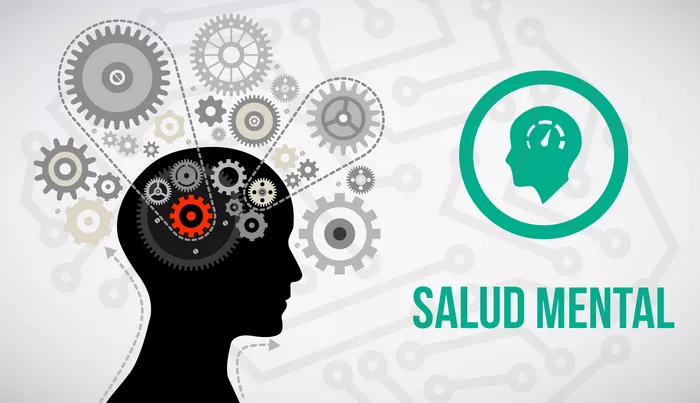Personality disorders are complex mental health conditions that significantly impact an individual’s thoughts, emotions, and behaviors. Two such disorders, histrionic personality disorder (HPD) and narcissistic personality disorder (NPD), often share certain characteristics but have distinct differences. In this article, we’ll explore the defining features, differences, causes, treatment options, and available resources for these disorders.
1. Defining Histrionic and Narcissistic Personality Disorders:
Histrionic Personality Disorder (HPD): HPD is characterized by a pattern of excessive attention-seeking emotions and behaviors. Individuals with HPD often feel uncomfortable when they are not the center of attention and may go to great lengths to garner it. This disorder typically emerges in early adulthood and presents in various contexts.
Diagnostic Criteria (DSM-5):
Discomfort in situations where they are not the center of attention.
Interaction with others is often characterized by inappropriate sexually seductive or provocative behavior.
Rapidly shifting and shallow expressions of emotions.
Consistently uses physical appearance to draw attention to themselves.
Style of speech is excessively impressionistic and lacking in detail.
Theatrical, dramatic, and exaggerated expression of emotion.
Easily influenced by others or circumstances.
Considers relationships to be more intimate than they actually are.
Narcissistic Personality Disorder (NPD): NPD is characterized by a pervasive pattern of grandiosity, need for admiration, and lack of empathy. Individuals with NPD often have an inflated sense of self-importance and a constant need for excessive admiration. This disorder typically becomes evident in early adulthood and affects various aspects of the individual’s life.
Diagnostic Criteria (DSM-5):
Grandiose sense of self-importance.
Preoccupied with fantasies of unlimited success, power, brilliance, beauty, or ideal love.
Belief that they are special and unique and can only be understood by or associate with other special or high-status people.
Requires excessive admiration.
Sense of entitlement.
Interpersonally exploitative behavior.
Lacks empathy: unwilling to recognize or identify with the feelings and needs of others.
Envious of others or believes that others are envious of them.
Arrogant, haughty behaviors or attitudes.
2. Comparing and Contrasting the Disorders:
| Aspect | Histrionic Personality Disorder (HPD) | Narcissistic Personality Disorder (NPD) |
|---|---|---|
| Attention-seeking | Craves attention and often uses dramatic or exaggerated behaviors | Seeks admiration and attention to validate their grandiose self-image |
| Emotional regulation | Emotions are shallow, rapidly shifting, and easily influenced | Grandiose sense of self masks underlying fragility and vulnerability |
| Sense of self | Self-esteem is often tied to external validation and attention | Inflated sense of self-importance and superiority over others |
| Relationships | Superficially intimate, easily influenced, and prone to drama | Manipulative, lacks empathy, and may exploit others for own gain |
3. Causes and Risk Factors:
The exact causes of histrionic and narcissistic personality disorders are not fully understood, but several factors may contribute, including:
Genetics: Family history of personality disorders or mental illness.
Childhood experiences: Trauma, neglect, or overindulgence during upbringing.
Environmental factors: Cultural influences, societal expectations, and peer pressure.
4. Treatment Options:
While personality disorders can be challenging to treat, several options may help manage symptoms and improve functioning:
Psychotherapy: Cognitive-behavioral therapy (CBT), dialectical behavior therapy (DBT), or psychodynamic therapy can help individuals understand and modify maladaptive behaviors and thought patterns.
Medication: Antidepressants, mood stabilizers, or antipsychotic medications may alleviate symptoms of depression, anxiety, or mood instability.
Group therapy: Support groups or group therapy sessions can provide a sense of community and validation for individuals struggling with similar issues.
Hospitalization: In severe cases or during crises, hospitalization may be necessary to ensure safety and stabilization.
It’s essential for individuals experiencing symptoms of histrionic or narcissistic personality disorders to seek professional help from qualified mental health professionals. A comprehensive evaluation and personalized treatment plan can significantly improve quality of life and interpersonal relationships.
Conclusion
These resources offer valuable information, support, and guidance for individuals affected by personality disorders, as well as their families and loved ones. It’s important to remember that recovery is possible with proper diagnosis, treatment, and ongoing support.
FAQs
Do histrionics have empathy?
Individuals with histrionic personality disorder may have difficulty with empathy due to their focus on seeking attention and admiration. However, empathy can vary among individuals, and some may still possess empathetic abilities to varying degrees.
What mental illness mimics narcissism?
Borderline personality disorder (BPD) can mimic narcissism due to overlapping symptoms such as unstable self-image, impulsivity, and difficulty in relationships. Both disorders involve issues with identity and interpersonal functioning, but they have distinct features and treatment approaches.
Am I a histrionic narcissist?
To determine if you have histrionic personality disorder or narcissistic personality disorder, it’s essential to consult a mental health professional for a thorough evaluation. Self-diagnosis based on limited information or symptoms may not provide an accurate understanding of your mental health condition.
Related topics:
- Transsexualism: A Misunderstood Reality
- Navigating Disability Benefits with BPD
- Navigating SSI with BPD: A Comprehensive Guide


